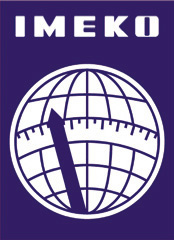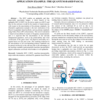
IMEKO TC6 M4Dconf
Hybrid with physical attendance in Berlin, Germany
19 — 21 September 2022
Promising benefits of an self-updating (U)DCC application example: the quantum-based Pascal
Digital transformation beyond the state-of-the-art
20th September, 15:50 CEST
Siemens Building, Sitzungssaal 310
Authors
- Tom Moses Rubin, PTB
- Thomas Bock, PTB
- Matthias Bernien, PTB
Paper
PROMISING BENEFITS OF AN SELF-UPDATING (U)DCC APPLICATION EXAMPLE: THE QUANTUM-BASED PASCAL383 KB
The DCC enables an updatable and thus improvable uncertainty budget. A direct benefit of the updatable DCC (UDCC) for the device under test (DUT) and thus for the end users would be the transfer of improvements with respect to the uncertainties of the primary standards. An illustrative application example is the new realization of the Pascal via quantum-based methods, such as primary standards using Fabry-Perot (FP) refractometry. This novel realization is based on traceability by means of frequency measurements and it is expected that the uncertainties of the relevant fundamental quantities, such as the polarizability and virial coefficients of the gases used, will improve noticeably on a regular basis over the next years. The resulting reduction in the uncertainties of all corresponding primary standards can be passed on directly to the end user due to the advantages of the machine-readable (and potentially machine-interpretable) digital calibration certificate which makes it well updatable.
